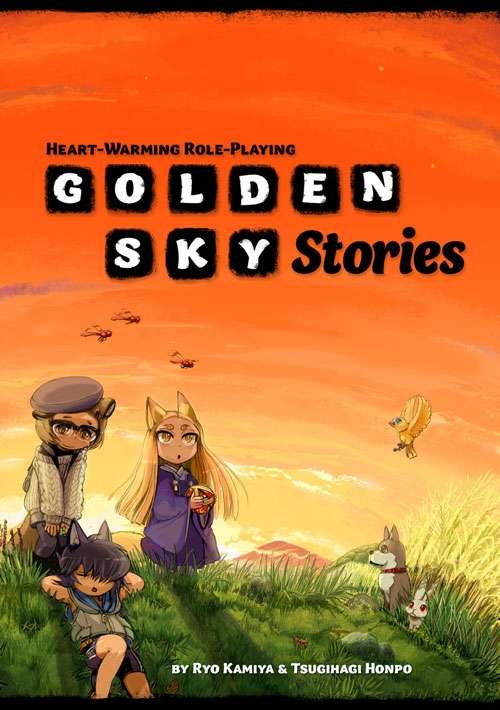I started to feel that I didn’t know roleplaying games well enough so I came up with the plan to read a roleplaying game corebook for every year they have been published. Selection criteria is whatever I find interesting.

I know that the design style I’ve employed in making Chernobyl Mon Amour and Bad Sex: the Roleplaying Game is niche. Pretty much every other game I’ve ever read has different design priorities, choosing to focus on things like combat or the construction of narrative through game mechanics.
Reading the Japanese game Golden Sky Stories, I had the precious and surprising experience of getting to know a game where the design focuses on the same kinds of things that I find most interesting: The small nuances of social scenes and the emotional textures of human interaction. Very delicate, beautiful things that often feel ignored by the field of roleplaying game design.
It’s an understatement to say that I loved this game. It’s a masterpiece! Such beautiful focus on these lovely small, human interactions.
Golden Sky Stories is set in a small town in the Japanese countryside. The characters are henge, shapeshifting animal spirits such as foxes and dogs. Their human forms are always children, even if they are really older. The core of the game is in simple encounters where the henge help a human, often a child, who feels bad for some reason.
The game stresses that this is not about fighting anyone, or making big stories, or solving serious issues. Rather, it’s about emotionally nuanced smaller encounters. In the end, everyone s happy and their friendship deepens.
The game has simple mechanics with stats such as Adult and Animal and special abilities available to the henge. There is no dice-rolling; the Feelings points you’ve accumulated can be used to resolve social tensions, essentially simulating emotional labor. The most drastic thing the mechanics produce is Surprise, where someone is startled and must be calmed down.
The book also contains a sample town and notes about what the Japanese countryside means as a setting in this context. This is very useful for a reader such as myself who doesn’t have any previous cultural understanding of rural Japan.